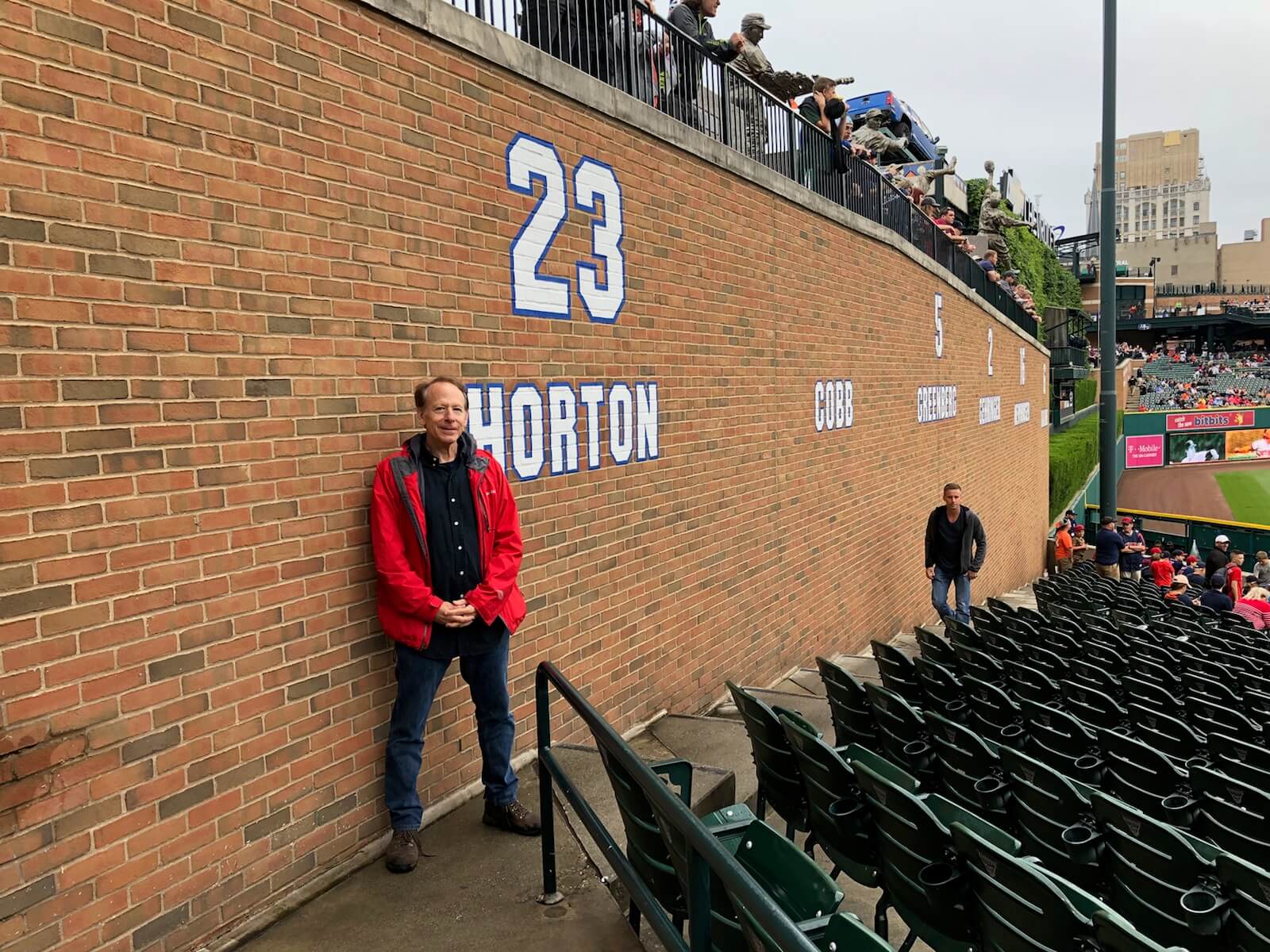Contributor Spotlight: Laurence Levy
 Laurence Levy’s story “The Rules of Time Travel” appears in Midwestern Gothic‘s Summer 2018 issue, out now.
Laurence Levy’s story “The Rules of Time Travel” appears in Midwestern Gothic‘s Summer 2018 issue, out now.
What’s your connection to the Midwest, and how has the region influenced your writing?
My family has lived in Ohio since the early 1800s, and from childhood I have been fascinated by the history of its cities. I used to pester my grandparents to share stories about the “old days” in Toledo, especially its history of labor strife, ethnic communities, and gangsters. As a child, I’d ride my bike into foreign areas of the city, looking for secret places and hoping to get lost. I loved the old houses in neighborhoods where my family no longer lived, and I imagined the people who occupied them. For the past ten years I have written literary fiction set in recognizable Toledo neighborhoods, which demonstrates that I never abandoned my childhood interests.
What do you think is the most compelling aspects of the Midwest?
For a decade after college, I moved around the country, but I returned to Toledo because it is home. I am comfortable with its rhythms of speech, its guarded optimism, its sense of community, and its stubborn politics. AIso, I want my children to know their extended family, understand its history, and root for the Detroit Tigers.
How do your experiences or memories of specific places—such as where you grew up, or a place you’ve visited that you can’t get out of your head—play a role in your writing?
A sense of place is at the center of all my writing. My childhood explorations of Toledo by bicycle are similar to the way I jump into writing stories without knowing where they will lead.
Discuss your writing process — inspirations, ideal environments, how you deal with writer’s block.
I enjoy the process of turning a stranger’s expression, a disturbing memory, or a meditation about a city street into a created world. After Toledo’s historic Jeep factory was demolished, I walked around the cleared land until I could imagine the life of someone who once worked there. I combined his fictional history with stories incarcerated kids told me about their violent protests in that same neighborhood against neo-Nazis. The creative process is a mystery, but I trust that if I keep jamming story fragments into my brain, something interesting will happen. I don’t believe in writer’s block, but sometimes the creative process is slow to work.
How can you tell when a piece of writing is finished?
A story is finished when I can’t find any more words to trim from my over-detailed drafts.
Who is your favorite author (fiction writer or poet), and what draws you to their work?
It’s difficult to choose a single favorite writer because I’ve fallen in love with so many of them. In my teens, I read great stylists without really understanding what they were writing about—Faulkner and Joyce, for example—because their texts were mysterious and transcendent and promised to reveal the secrets of the universe. However, viewing literature as sacred text wasn’t helpful to my development as a writer. When I began to simply tell stories, instead of creating art, I became a much better writer.
What’s next for you?
I’m working on a novel set in a near-future Toledo (surprise) based on an imagined conflict between immigrant families and America Firsters. It takes place in the midst of an epidemic blamed on Islamic refugees.
Where can we find more information about you?
Write to me at Laurence_Levy@owens.edu






